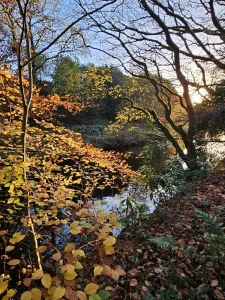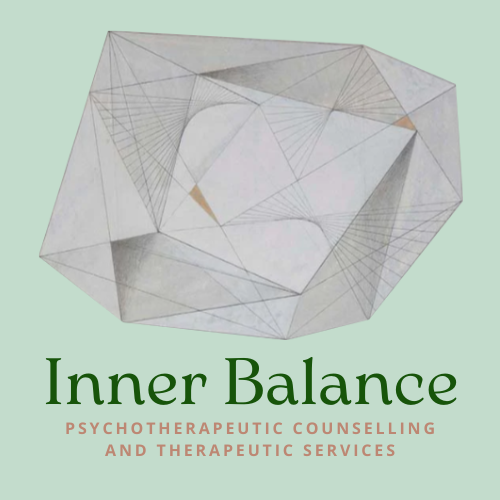
In truth, we are part of the natural world, not separate from it. Yet, in modern Western capitalist societies, we have become distanced from this truth—often by forces and structures beyond our control. I don't think it's overly dramatic to say that, for many of us, modern society denies us our birthright: a deep, secure and intimate connection with the Earth to which we belong.
As a result, many of us suffer from feeling displaced and alienated from the natural world—we might not even know it, I didn't. We might just feel it as longing for something that seems just beyond our reach. Now, in an era of accelerating ecological crisis, that longing is increasingly compounded by grief and a profound sense of helplessness. For a time, our ingenuity as a species allowed us to cultivate the illusion of separation from nature (I'm looking at you oil). But nature is reminding us, with increasing urgency, that we are not separate at all. We are of the Earth, and our existence is entirely dependent upon it.
Disconnection from the natural world brings grief and yearning. But if disconnection hurts us, what might reconnection offer in return? Below is a tiny exploration of this. I've given them some headings but in truth they are all connected in rich, complex, interdependent ways, just like nature, but for now, this will do for me.
Stability
The modern world is fast, demanding and ever changing. News, phones, traffic, shopping, bills...zap zap zap, hurry up! The pace of change is pretty relentless, as is the sensory bombardment we face even doing normal everyday tasks, like visiting the supermarket or crossing a road. Nature offers us a refuge from all of this. It simply exists, and while it has it's own rhythms and flows, they change slowly -- nature isn't in a rush, and when we go into a park or a wood we can directly access this slow, enduring stability. If you sit with your back against a tree you feel it. A walk in nature offers us familiarity - looking at a leaf, we see the fibonacci sequence, just like we've seen it a million times before, in the shape of flowers, pinecones, shells, the branching of trees and even the proportions of the human face. It is familiar, it shows us that there is order amidst chaos and that helps us to feel stable. And who could talk about stability without mentioning the ground? It's everywhere and it's arguably the most stable thing there is. We even call it grounding - what we do to bring a feeling of stability when we are feeling overwhelmed.
Soothing
The natural world is rich, vibrant, and inherently life-giving. When we are in it our senses are awash with it and this helps to regulate our nervous system and restore inner balance. Science is finally catching up to what we have always known—studies show time in nature leads to decreased cortisol (the stress hormone) in our bodies, and this has lots of knock on effects for our health and mental wellbeing. I believe the act of focusing on nature, be it the rustle of the wind through the leaves or the slow drift of clouds across the sky, can become for us as comforting and soothing as a child looking into the face of a loving caregiver. Nature reminds us that there is a place in the world where we're always welcome.
Support
Reconnecting with nature does more than just soothe—it supports. When we return to the natural world with openness, we find wisdom, acceptance, nurture, sustenance, patience, and protection. We rediscover that we do not need to navigate life in isolation; instead, we are part of an intricate, interdependent web. I imagine it as a network in which I am a node, receiving through my senses, transmitting through my actions. This vast network of connection gives us avenues to process and release our traumas. You can visualise how much more easily we can disperse and process difficult, impactful experiences when we are connected compared to when we feel isolated, imagine a ball hitting a net compared to a ball hitting a skittle! The more we lean into this support, the more connected we feel and the more we remember that we were never meant to carry our burdens alone.
Meaning and Empowerment
Realising that we are part of the natural world also means understanding that we have a role within it—one that matters. When disconnected, we may feel helpless in the face of global environmental destruction, overwhelmed by forces beyond our control. The grief of witnessing ecological devastation, paired with fear for the future, can be paralysing. Yet, reconnection does not just bring comfort—it brings purpose. When we rebuild our relationship with nature, we open ourselves to the ways we can help. The Earth shows us where we are needed, whether through community gardening, conservation efforts, or simply by bearing witness and living in alignment with its rhythms. Nature holds the answers; when we listen, we begin to hear them.
Belonging
Perhaps most profoundly, reconnection brings us home. When we step back into relationship with nature, we remember that we are not separate, but woven into something vast, sacred, and alive. We are not outsiders looking in; we are part of the web of life. Through this reciprocity—offering our care to the Earth as it cares for us—we find our place once more, here on Earth, exactly where we're meant to be.
